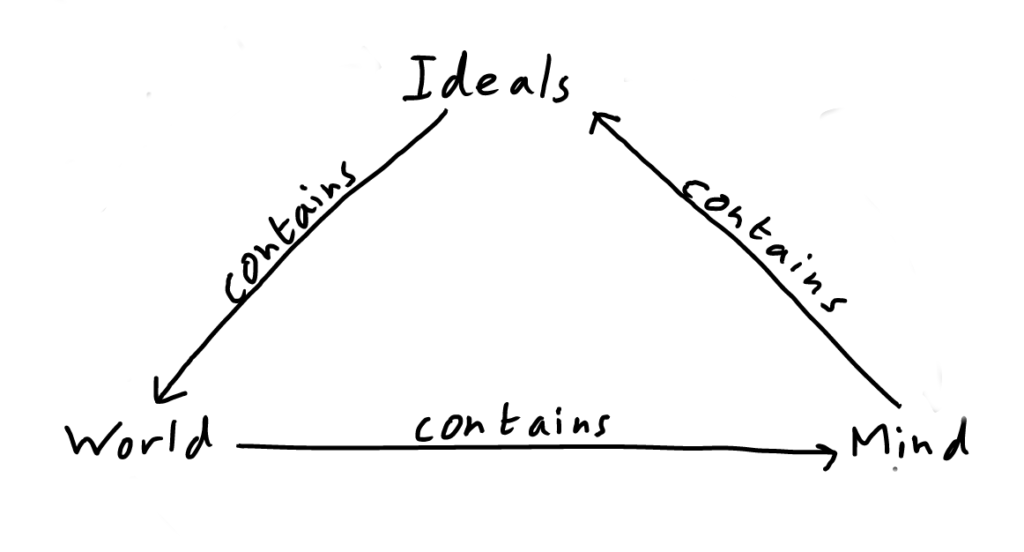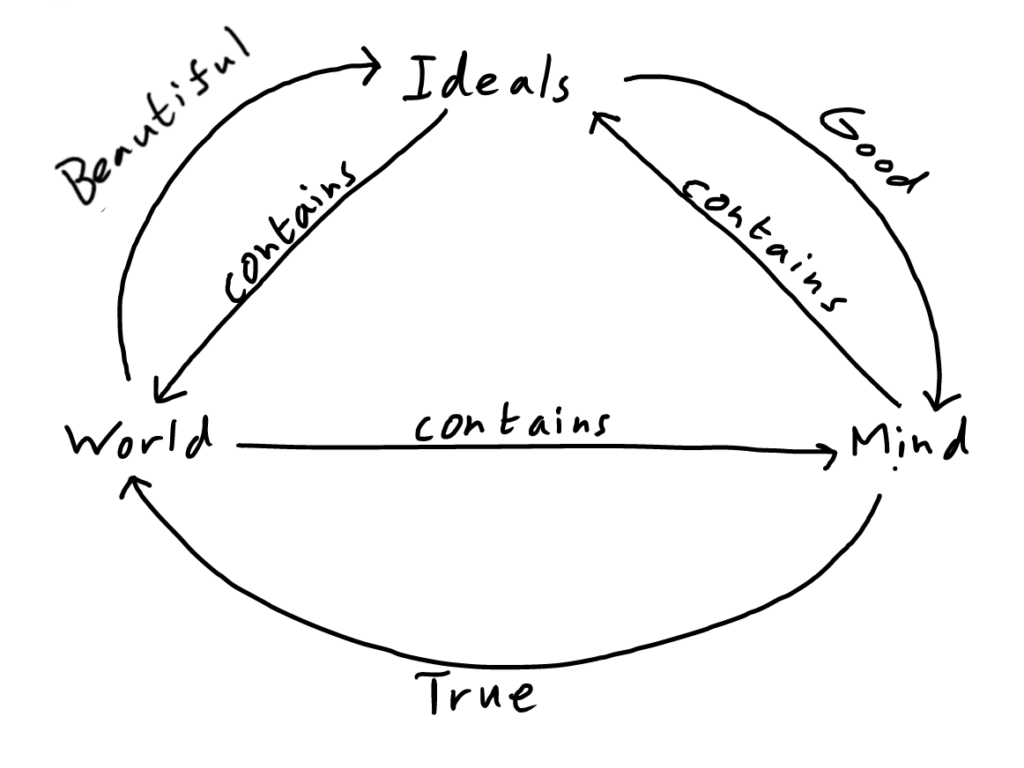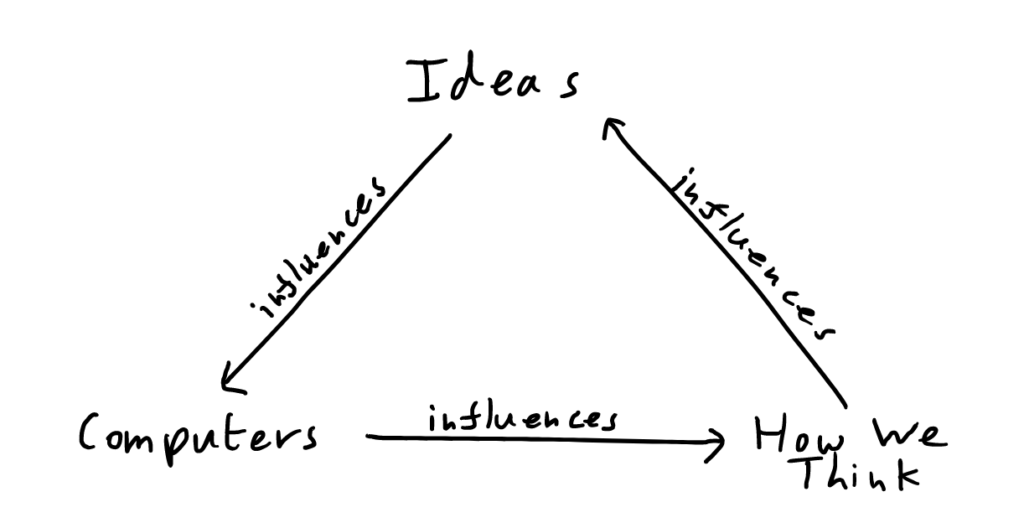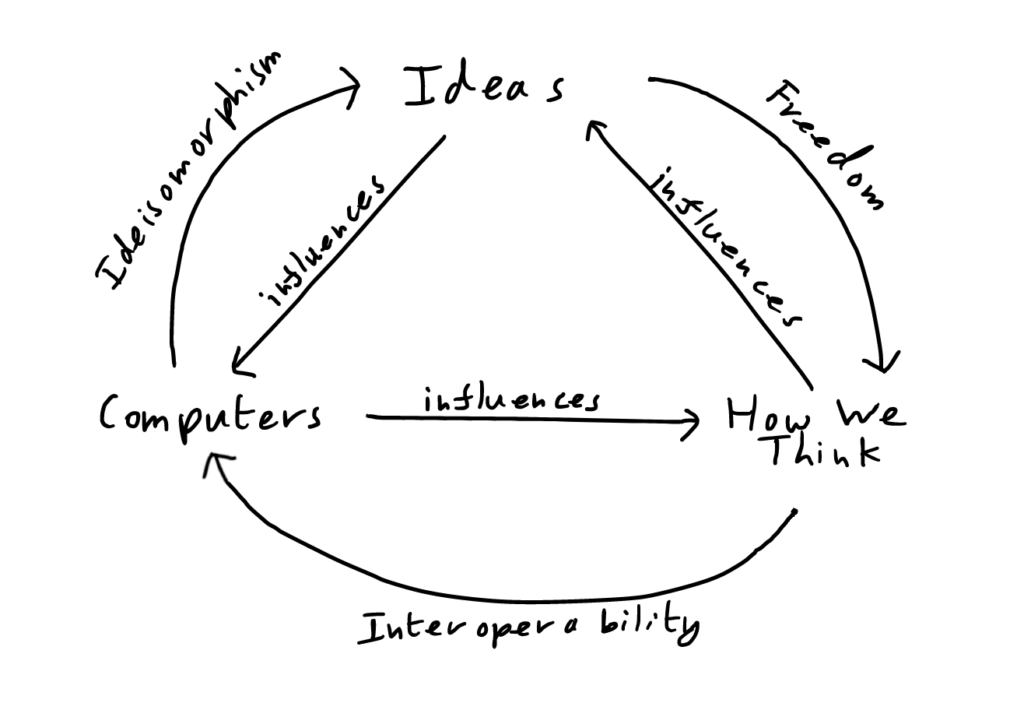HSM is building graceful systems—what does this mean?
Our society has, through the use of technology, achieved much. That said, it’s always easier to implement what comes naturally to computers rather than what is natural for people. I think that the unmitigated version of this trend is fundamentally anti-human, but at the same time, computers are vital to our long-term survival. Here are some recommendations for reform.
Introduction
While expedient, doing what is easy for computers and not what’s best for humans means that people are forever compromising in order to work with technology, while the first or early implementations of certain systems get entrenched. Computers and computer networks, which can and should be flexible and generalizable, get trapped in certain ways of doing things.
For example:
- The first recognizable electronic computer was built to calculate artillery trajectories, leading many to think of computers as arithmetical rather than general tools.
- Computer tabulation and accounting—dominated by IBM—led many to think of computers as business tools.
- Popular operating systems and widely-used applications like email, spreadsheet and word processing get people used to computers as clerical, hierarchical and formal, and there’s little by way of alternatives to show people that this rigid approach isn’t necessary.
At HSM, we look at things differently. Our approach is to come up with a vision for what we can be as people, and the sort of society that we would want to live in, and work back from there. This is to ask the question, what should we care about? And then ask, what tools would the people and communities who care about these things need?
We at HSM are of course not the first to do this: DEC, Apple, GNU, Linux and many others have have all in some way built a philosophy aside from the mainstream and implemented it successfully. We, however, want to build a philosophy of humans and computers that is derived from the core of what we find valuable as people. We think that if we hold on to this philosophy tight enough, we can change the ideas and standards that have dominated our relationship with computers since the beginning; we can go from business systems to graceful systems.
Diagnosis: Computosis
Computers and computer networks have the potential to change our lives for the better, in orders of magnitude more than the evolution of the human brain itself.
The evolution of the brain, and subsequently intelligence, allowed our species to free itself significantly from the whims of the environment. It made our lives primarily concerned with intelligence and information. Conversely, it opened us to the new threat of neurosis, obsession and spiritual blindness, which are much more rare (usually absent) in non-human animals.
The computer augments the brain and promises to do the same, a level up: it promises to give us some independence from the whims and vagaries of information and intelligence — forgetting, subjectivity, barriers of language and culture — thus compounding the power of our minds.
It brings, also, the same risks as intelligence, compounded also: we experience technological neurosis (which we might call computosis), seen most notably in how the tools of our own creation crush and frustrate us (cramming our ideas into tables and hierarchies), and even deceive and divide us through the feedback loops of propaganda and marketing.
Intelligence in itself is insufficient to live a good life, and has in fact the potential to make life worse; we have known this for years and have developed culture, art, morality and spiritual practices to cultivate what we value. Similarly, computers themselves are insufficient for the proper application of intelligence and for living the good life.
Spirituality as a word and concept can be alienating for some. This isn’t my intention: the reader shouldn’t interpret this word to imply my pushing any specific beliefs or supernatural ideas. Rather I recommend only that we should cultivate in our consciousness that which we value.
Put simply, people should pursue the good, the true and the beautiful. And when we waver, we should cultivate these things in ourselves. Computers should help us pursue these things, and when they don’t we should cultivate these things in them.
Our main priorities at HSM: freedom, interoperability and ideisomorphism are ways of achieving this, which we will explore in detail below.
On a high level, a computer should never nor should never be used to infringe someone’s rights (freedom), computers should facilitate human connection, and should operate together logically (interoperbility), they should never force someone to crush or denature their ideas or the truth in order to proceed (ideisomorphism).
Prescription: Technological Practice to Cultivate what We Value
Living Gracefully
So, what might it mean to integrate the pursuit of our core values (the true, the good and the beautiful) into a broader philosophy of computers? I think that a good place to start is Karl Popper’s famous framework of the Three Worlds:

In this framework, illustrated above in Roger Penrose’s lovely book, The Road to Reality, we see the interrelated, cyclic relationship between the worlds of the mind, of platonic mathematical truths, and of our physical reality:
- The mental world describes our human faculties of thinking, imagination, etc. (”Mind” for brevity)
- The platonic mathematical world is the sum of consistent mathematical/logical structures and concepts (“Ideals” for brevity)
- The physical world is the normal physical world that we experience with our senses and scientific instruments (”World” for brevity)
Popper described a fascinating relationship between these three worlds:
- The mind can understand and generate everything ideal.
- The set of all ideals appears to be the seed or basis of the real world.
- The world literally contains the mind, bringing us back to where we started.

I build on this framework in the diagram below, which I term Popper’s Three worlds: HSM Extension (PTWHE), to incorporate the three qualities of the good, the true and the beautiful into the story:
- The good is the set of well-formed ideals that relate to the concerns of conscious creatures (minds).
- The true is the mind manifesting an understanding of the world.
- The beautiful is the world manifesting the ideal, recognizable by the symmetry and pattern of that which we find beautiful.

We have many strategies that we use to pursue these things, and of course ethics, science and aesthetics which are the study of them, respectively, in themselves. The true, the good and the beautiful are, famously, not reducible to each other; my best attempt at choosing a word that suggests a devotion to them all is grace. To have grace is to embrace the good, freely, the truth, openly, and beauty, deftly.
Graceful Systems
What would it mean to manifest this orientation in our computer systems? To make my final point, I’d like to show you a diagram (redrawn) from my first real work in this area, Why the Ethical Character of the Internet Matters, from my series, The Future of Coordinated Thinking.

This is to say that the patterns of our thinking influence the set of ideas that we hold, which in turn influence how we build our computers, which in turn influences how we think, and so on. You might notice the similarity between this and the construct that we’ve been developing thus far; where:
| The Mind | contains | Ideals | contains | World | contains | Mind (and so on) |
| How we Think | influences | Ideas | influences | Computers | influences | How we Think (and so on) |
My framework, which we might call HSM’s Three Places is indeed a subset of Popper’s Three Worlds. So what are the equivalents of the the good, true and beautiful in this system?
Here’s the formulation that we follow here at HSM, which we can call HTPE (HSM’s Three Places Extended):
- Where in PTWHE we had the good, positioned between the mind and ideals, in HTPE we have Freedom; Freedom is most human aspect of The Way We Think manifested as a set of Ideas. We need freedom in order to achieve the Good, and to develop an ethical sense: you’re a good person only if you do the right thing voluntarily.
- In PTWHE we had Beauty between the World and Ideals, in HTPE we have Ideisomorphism (meaning the style of computers for which it is natural to express human thought). Ideisomorphism is the proper manifestation of Ideals in Computers. Ideisomorphism is a bridge to Beauty, giving us the flexibility and nuance we need to express it.
- In PTWHE we had Truth between the World and the Mind, in HTPE we have Interoperability (for the uninitiated, interoperability is like a step up from compatibility, based on open systems and fully-understood interfaces). Interoperability is the best manifestation of computers in how we think, interoperability, i.e. the openness and explicitness of speech facilitates connection and understanding between people, especially those who think differently. It is thus a gateway to Truth.

| Popper’s Three Worlds: HSM Extension | World | manifesting | Ideals | is | Beauty |
| Ideals | manifesting (concerns of) | Mind | is | Good | |
| Mind | manifesting | World | is | Truth | |
| HSM’s Three Places Extended | Computers | manifesting | Ideas | is | Ideisomorphism |
| Ideas | manifesting | How We Think | is | Freedom | |
| How We Think | manifesting | Computers | is | Interoperability |
These are of course merely methods: the true, good and beautiful will always warrant study and exploration in and of themselves. Meanwhile, tools that are interoperable, ideisomorphic and free (as in freedom) only allow you to live gracefully through them or perhaps hint at it; trying to force adherence to some specific morality or set of ethics via technology ends up violating one of these higher values, and certainly should not be in the purview of a platform such as HSM.
Conclusion
As mentioned above, we suffer from computosis because our systems are built on what is natural to implement in a computer, with accidents of corporate history baked in. This is destroying and deranging our consciousness and our communities. This is and will be just as harmful as our other obsessions with technology, such as the hurt done to American cities by an obsession with the car; the peril is more complete here, in that computers go directly for our minds.
Our philosophy of graceful systems is, therefore, a set of practices designed to mitigate and even cure computosis. This approach to the interplay of people and computers should help us to bring forth the very best out of both; the faster this cycle goes, the better things should get. The values of freedom ideisomorphism and interoperability, embedded into our creative process for technology will, we hope, bring about their mother-values of the good, beautiful and true.
Most companies think of computers as tools; we think of computers as an opportunity to cultivate our essence. Taking this idea seriously means that we must build graceful systems, now.